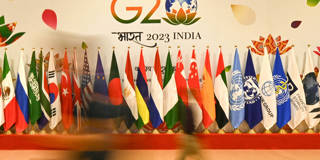The war in Ukraine has accelerated both the fracturing of the world order and countries’ scramble to establish new alignments that can secure their interests. Unless the G7 clarifies its direction, it risks losing its influence, with potentially far-reaching consequences for democratic values globally.
MADRID – If anyone had lingering doubts about the fractured state of global rule-making, they should now be dispelled. The just-concluded G20 summit in New Delhi attracted as much attention for who was not there – Russian President Vladimir Putin and Chinese President Xi Jinping – as for the discussions among those who showed up. But the real takeaway from the summit, as well as the gathering of the BRICS (Brazil, Russia, India, China, and South Africa) that preceded it, is that global rule-making is set to become increasingly uneven, shaped by small groups, swing states, and fluid coalitions.

MADRID – If anyone had lingering doubts about the fractured state of global rule-making, they should now be dispelled. The just-concluded G20 summit in New Delhi attracted as much attention for who was not there – Russian President Vladimir Putin and Chinese President Xi Jinping – as for the discussions among those who showed up. But the real takeaway from the summit, as well as the gathering of the BRICS (Brazil, Russia, India, China, and South Africa) that preceded it, is that global rule-making is set to become increasingly uneven, shaped by small groups, swing states, and fluid coalitions.